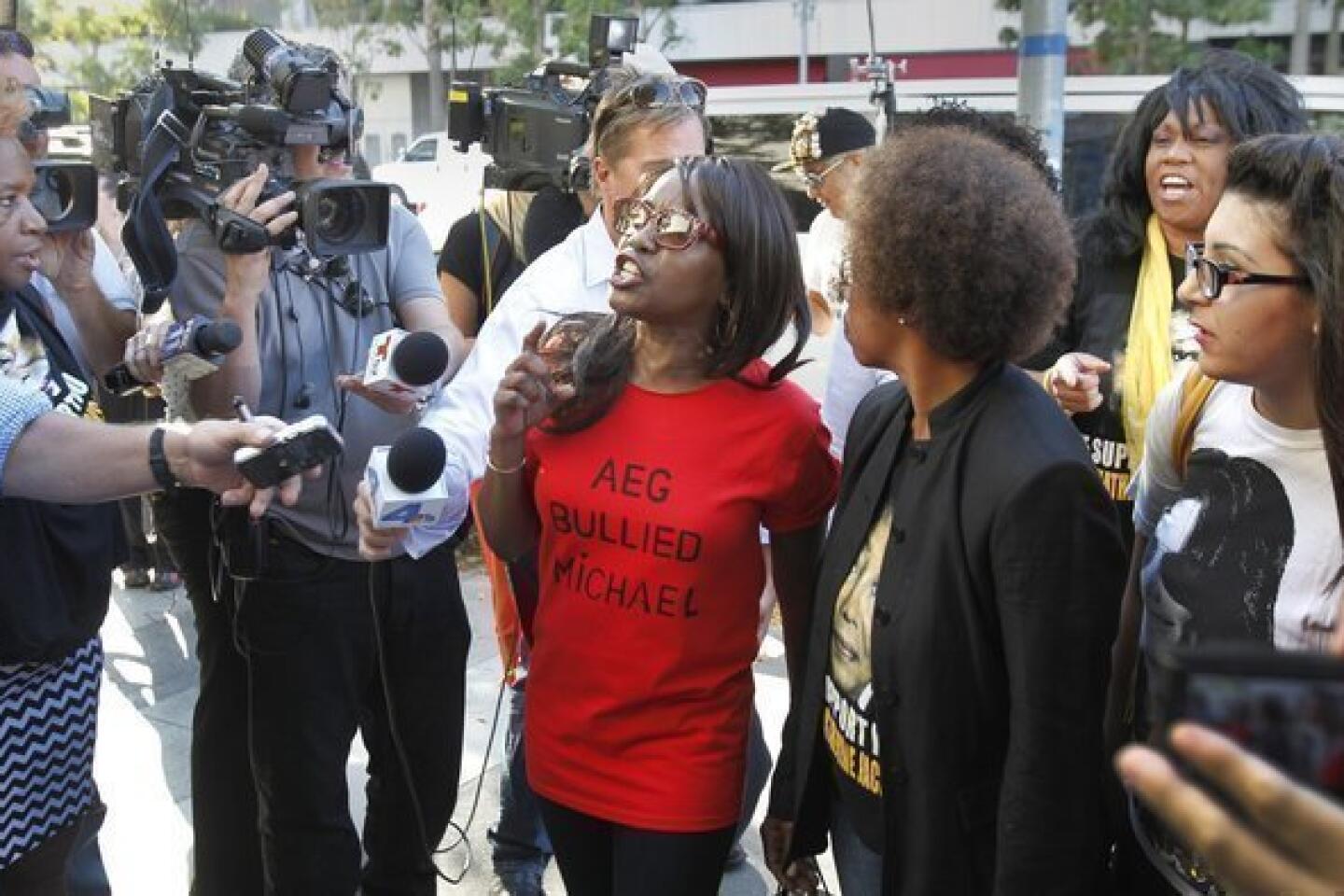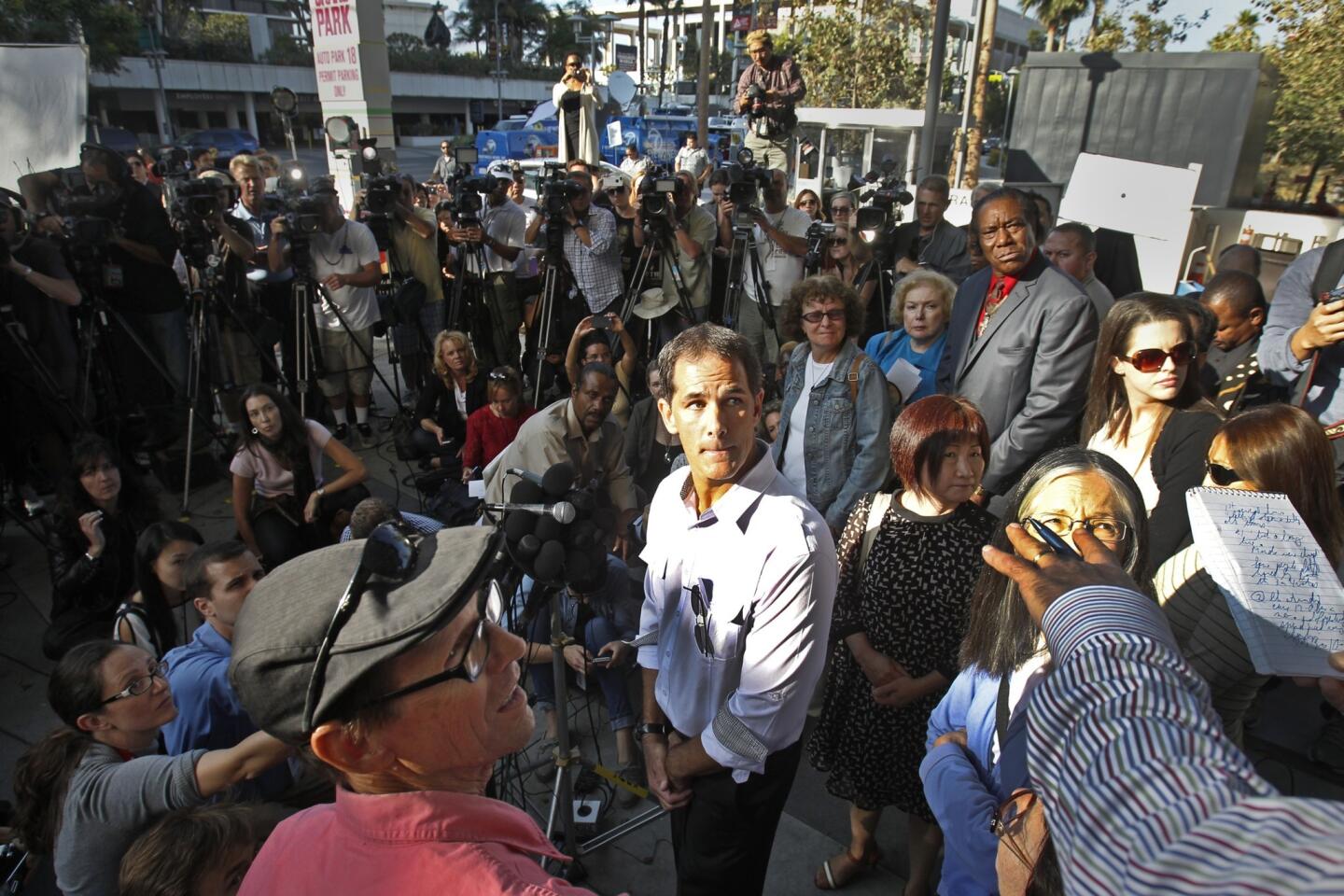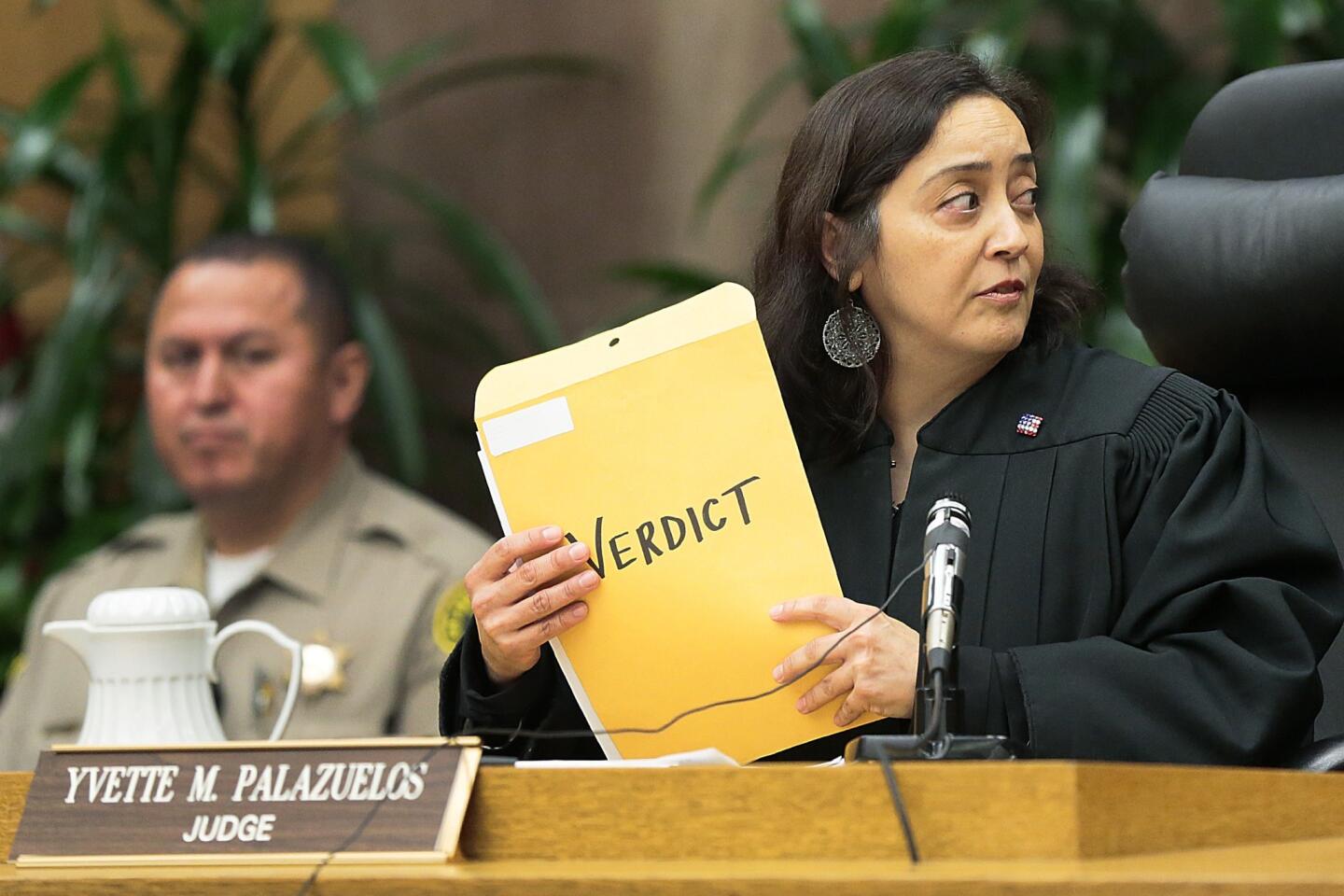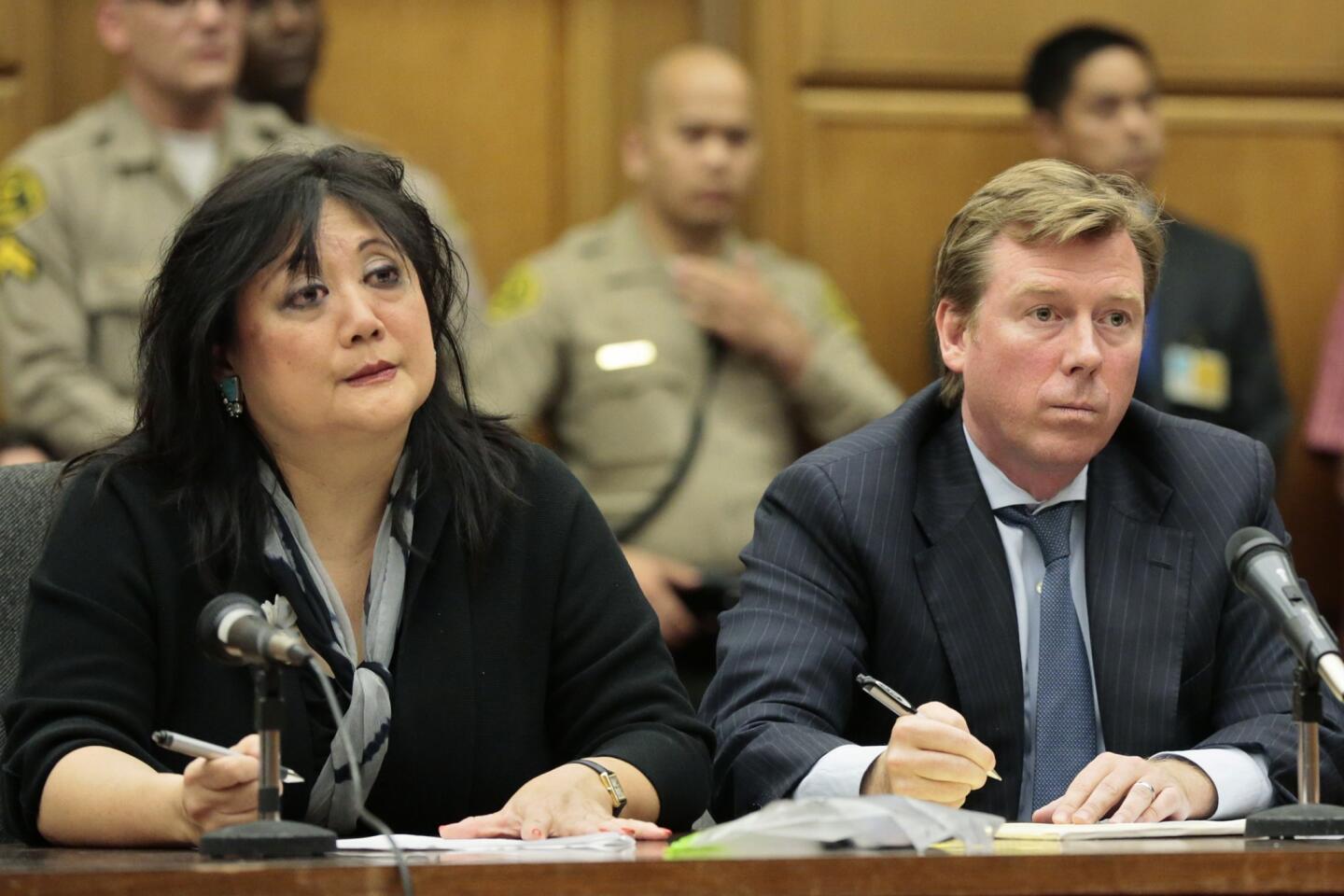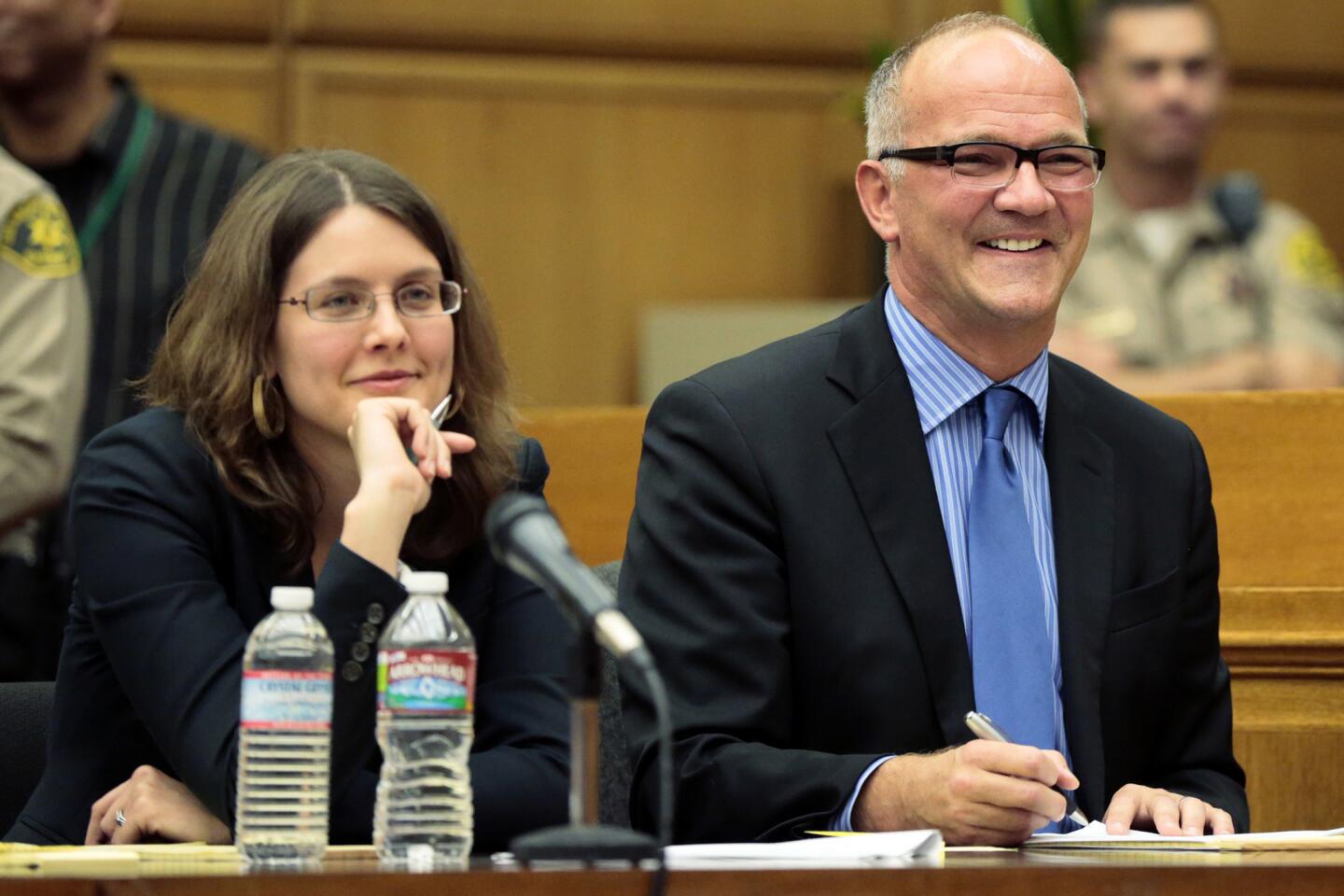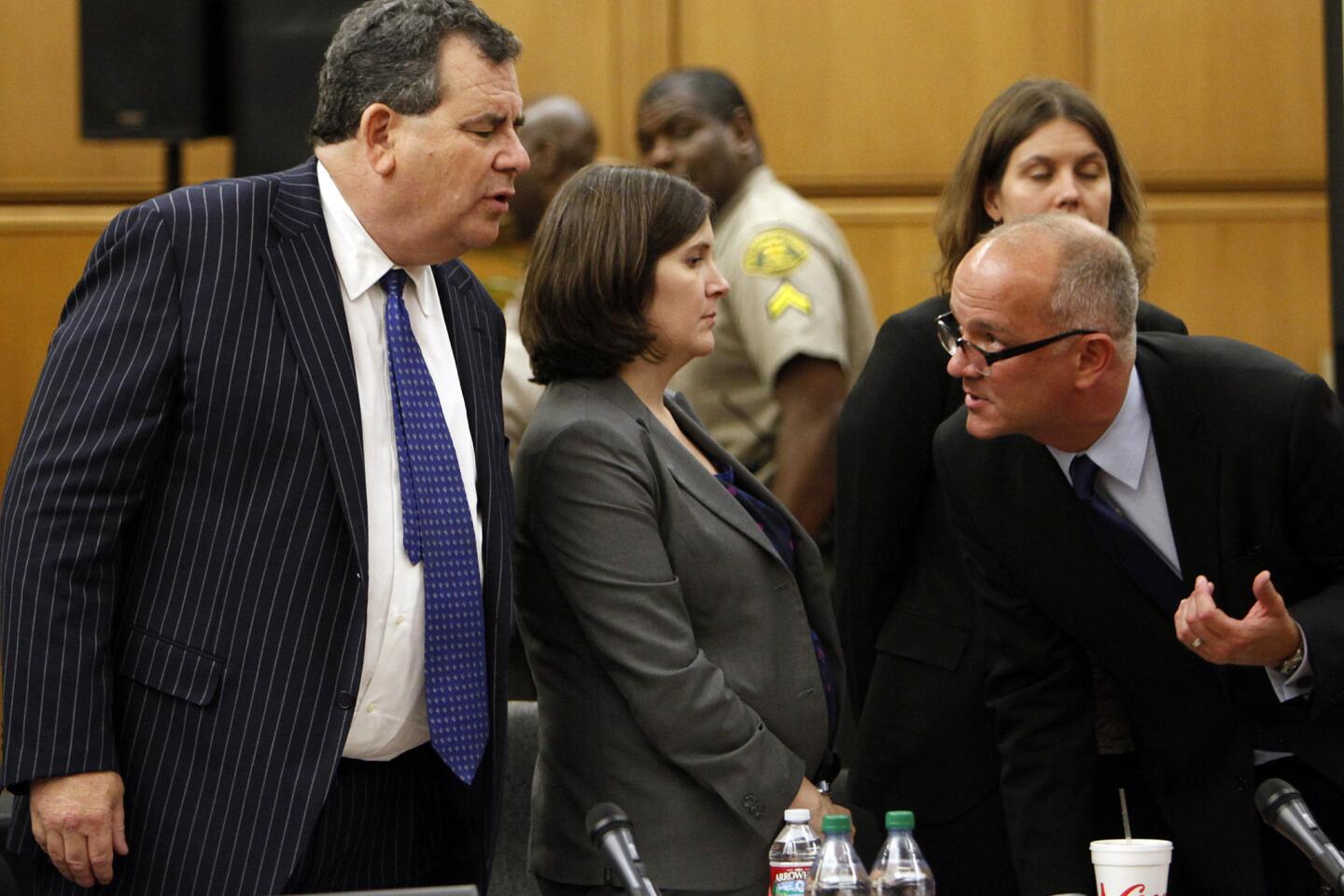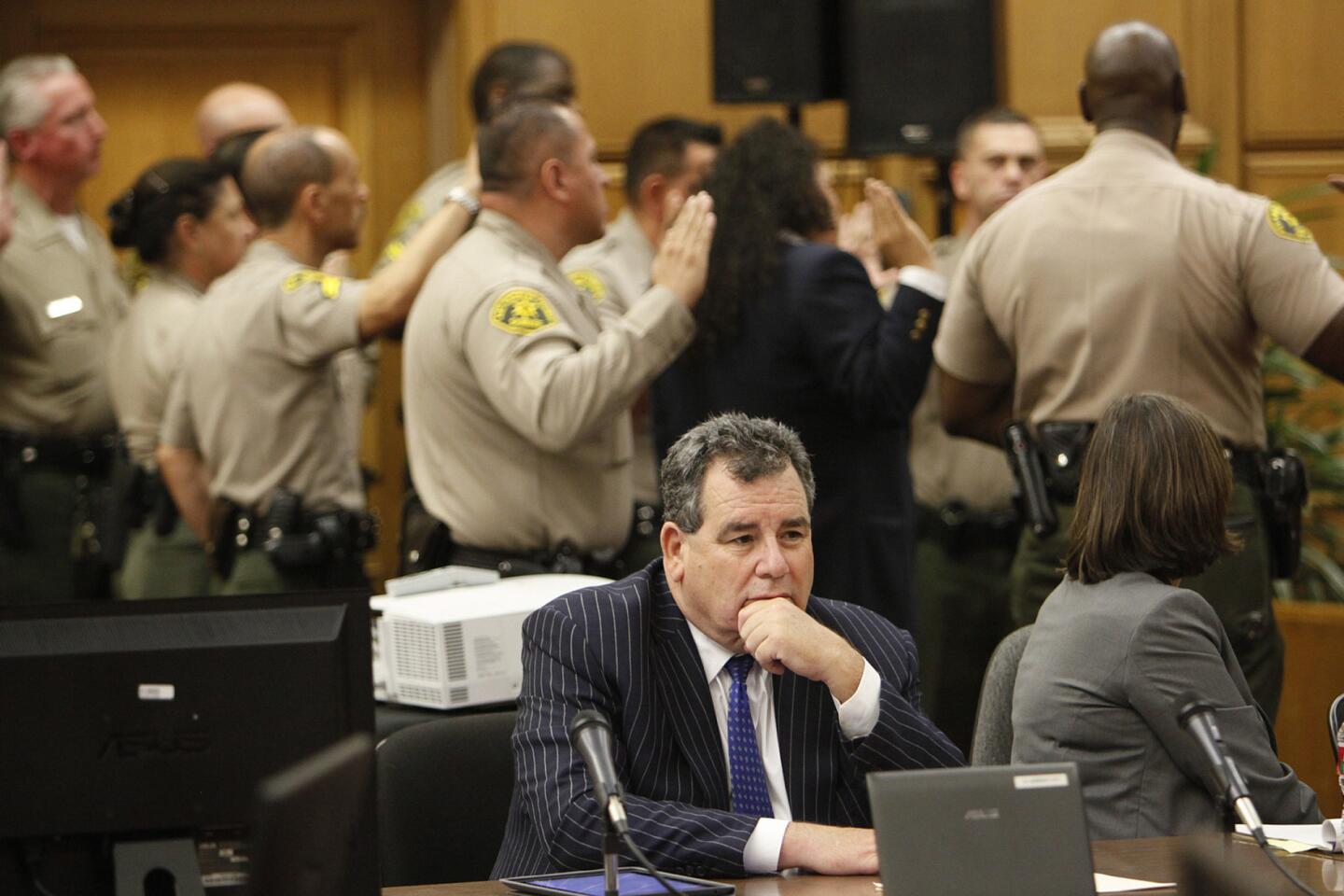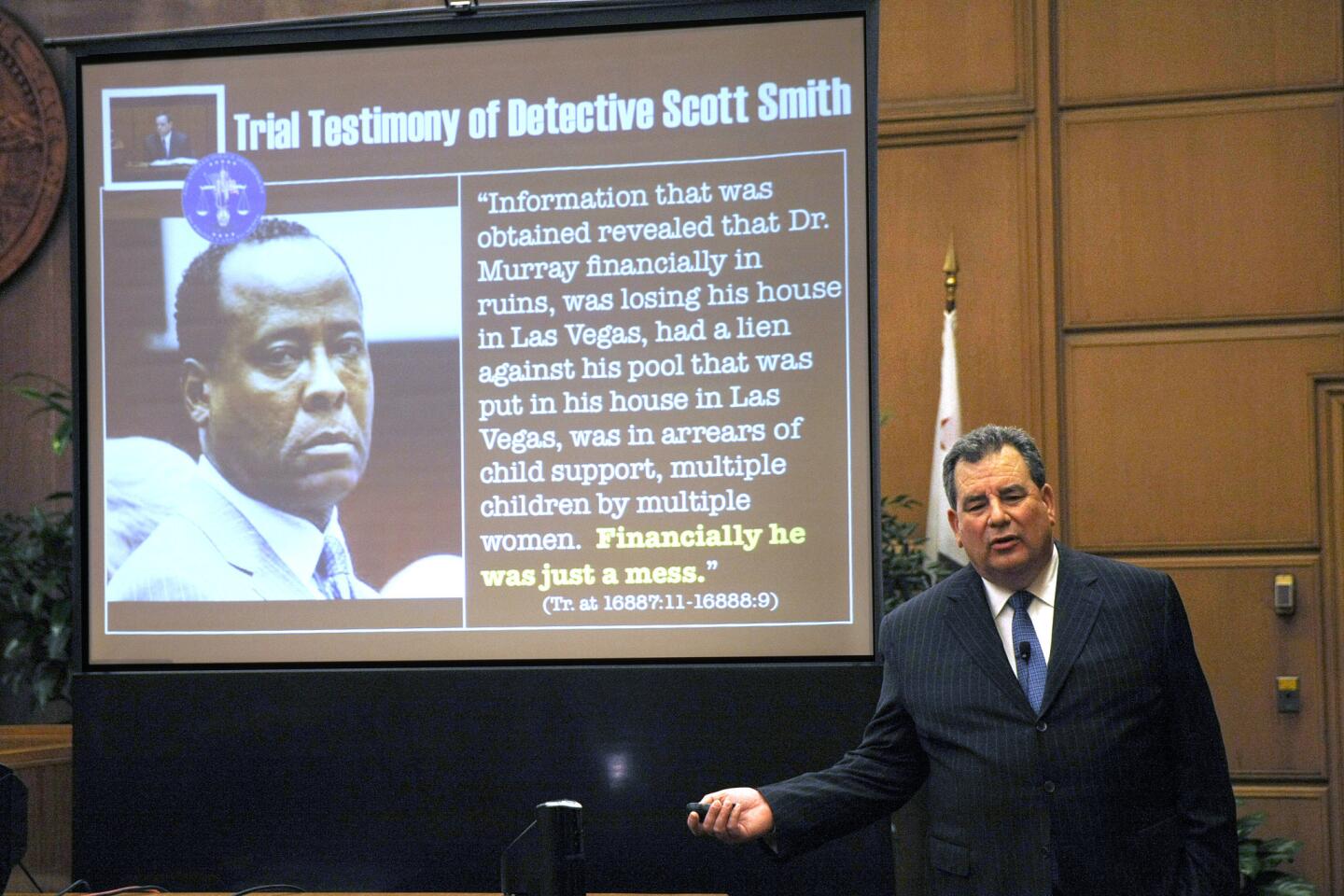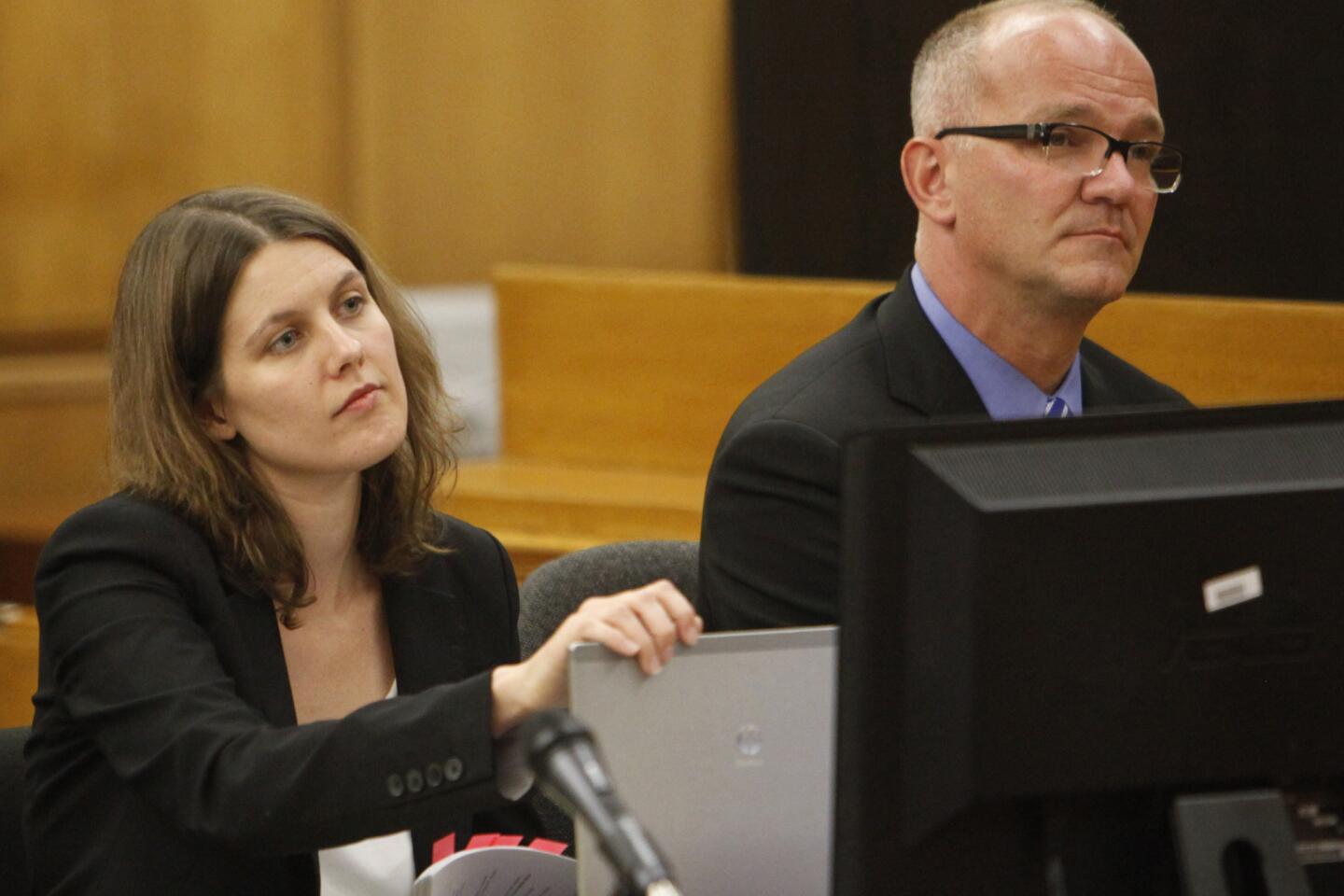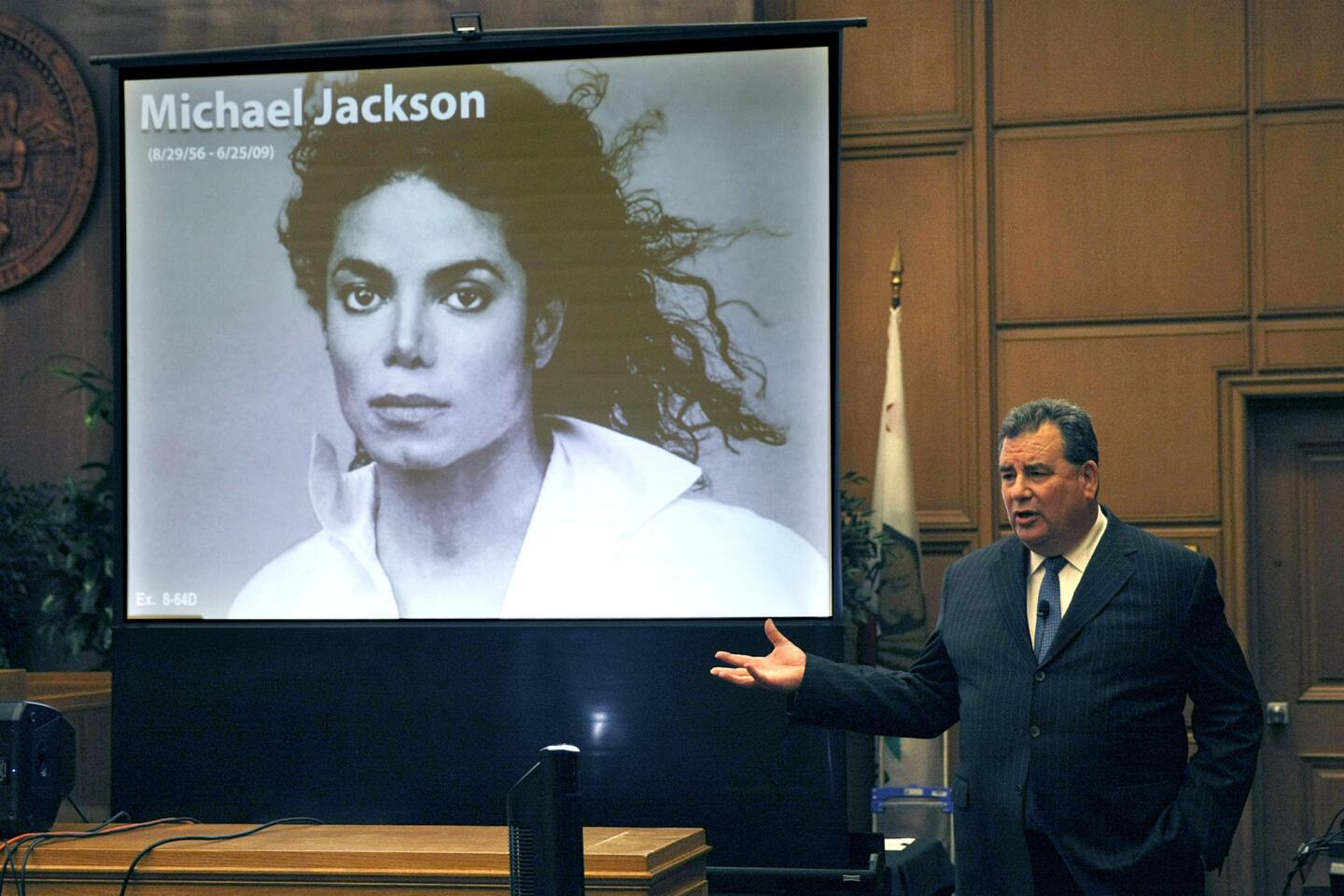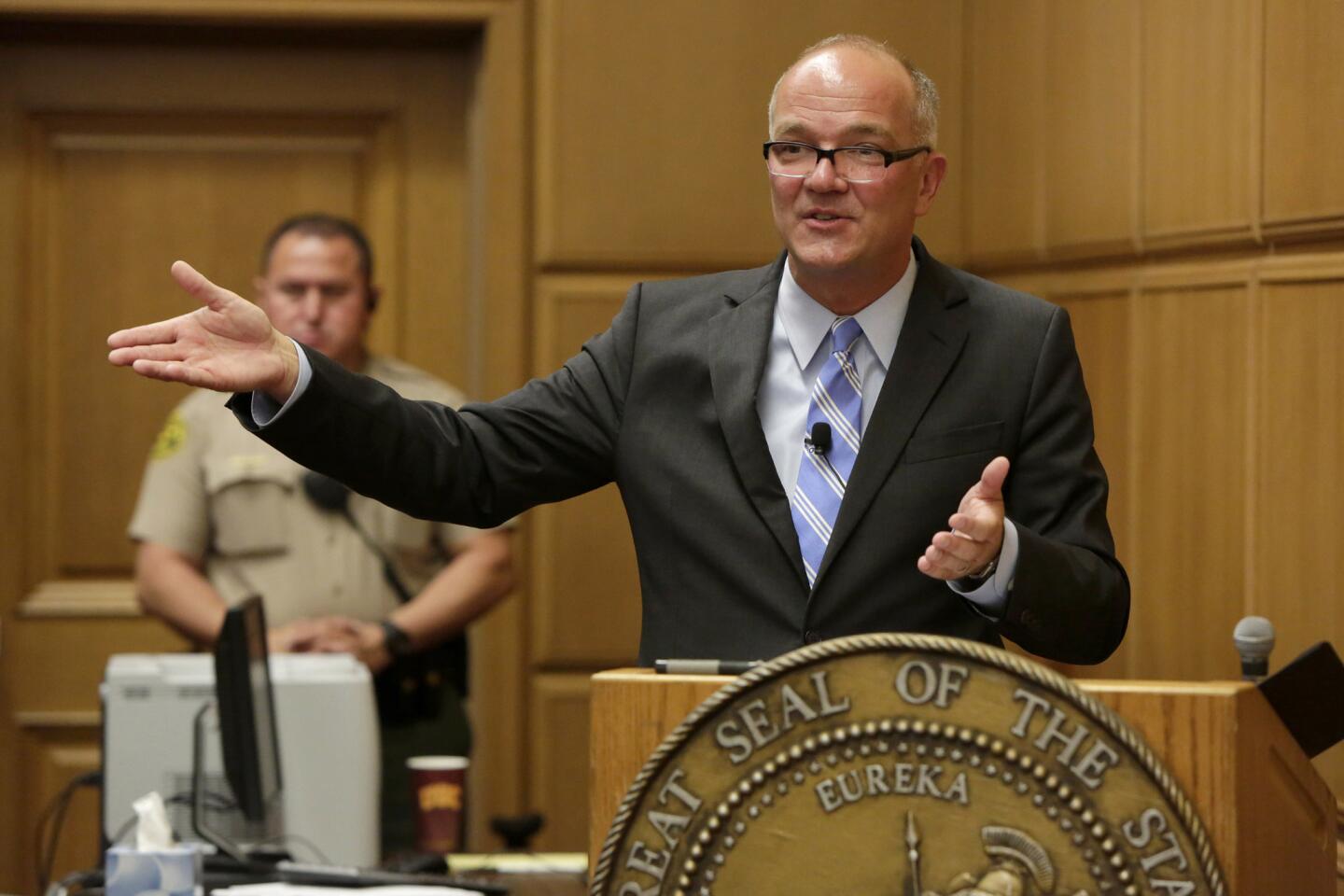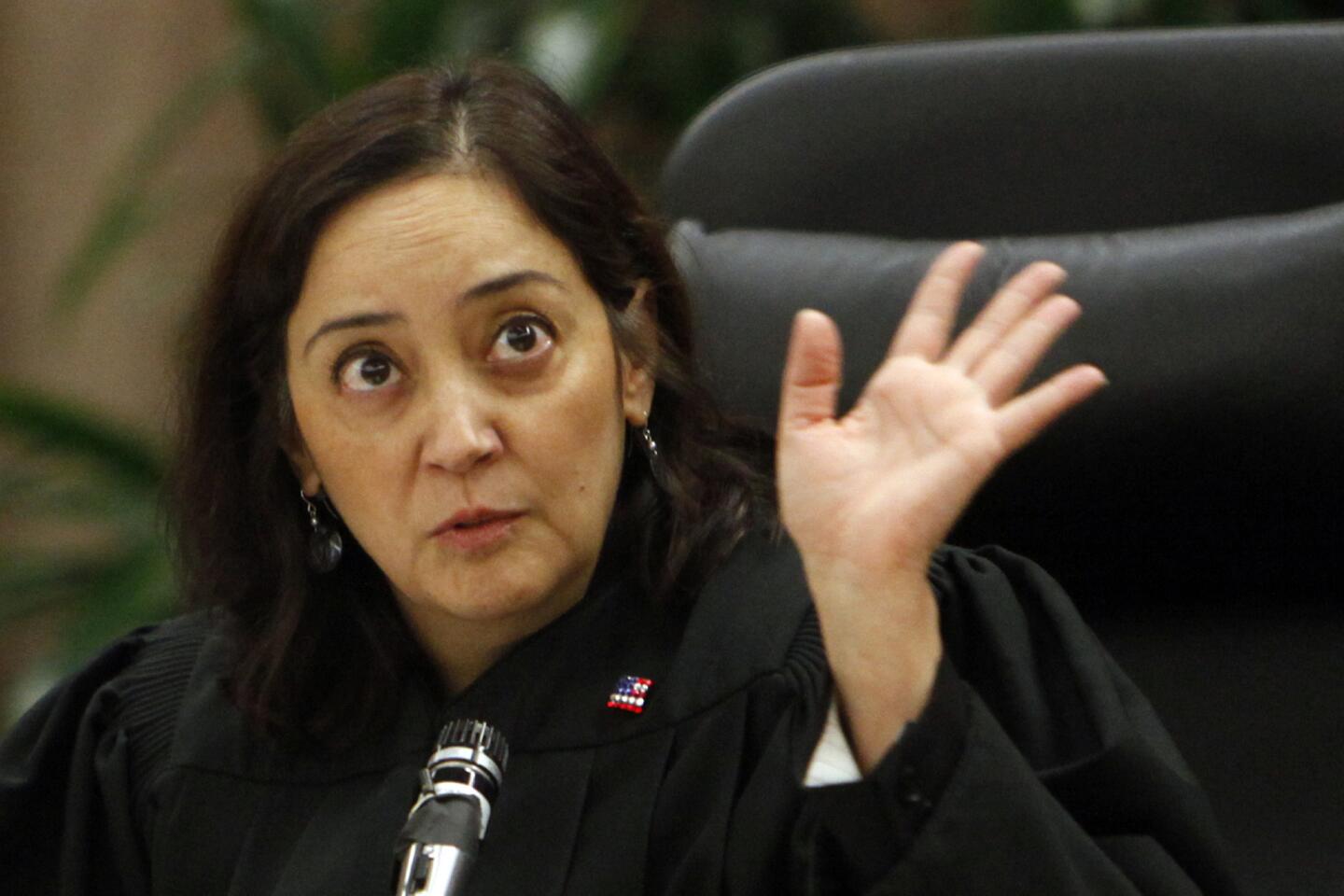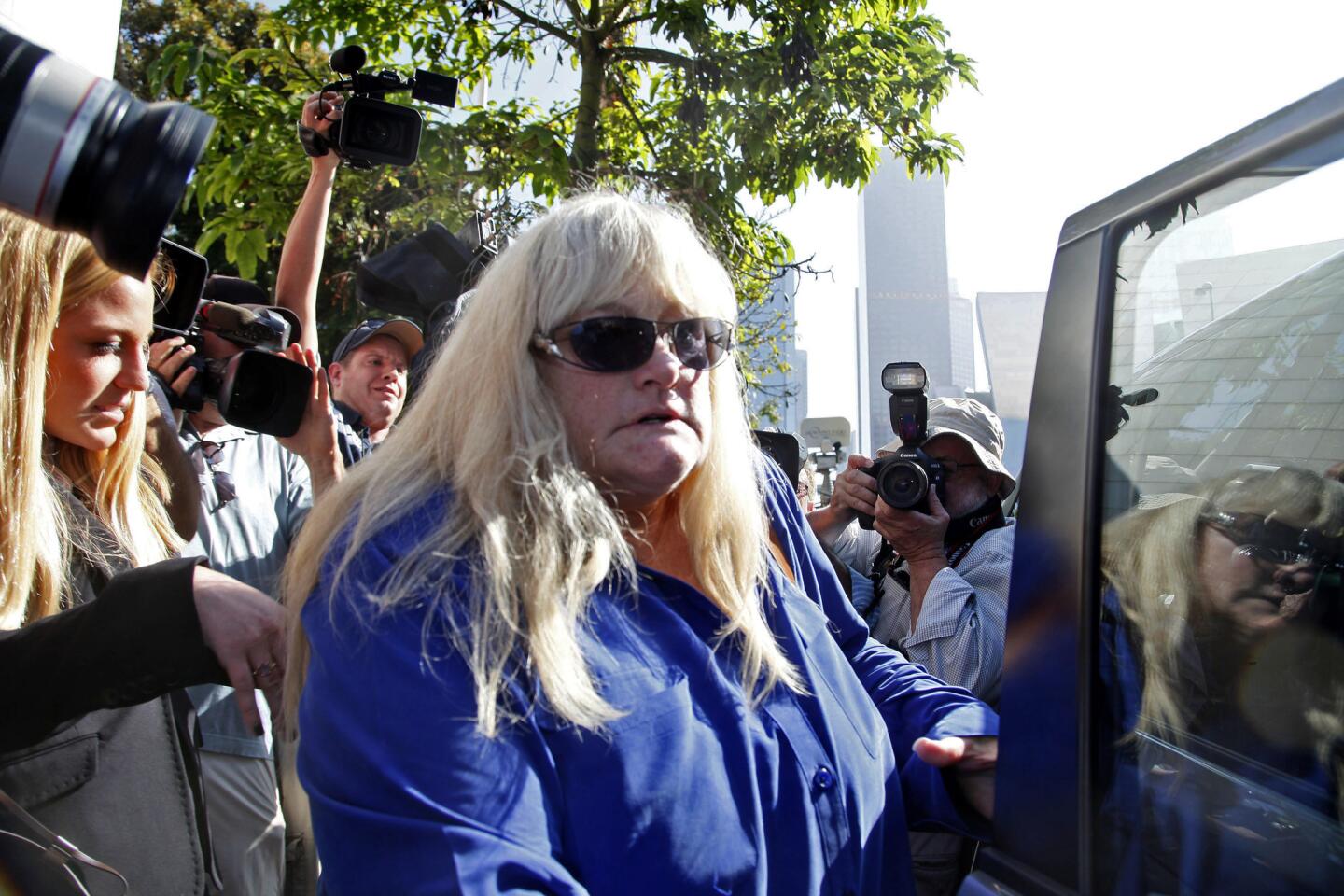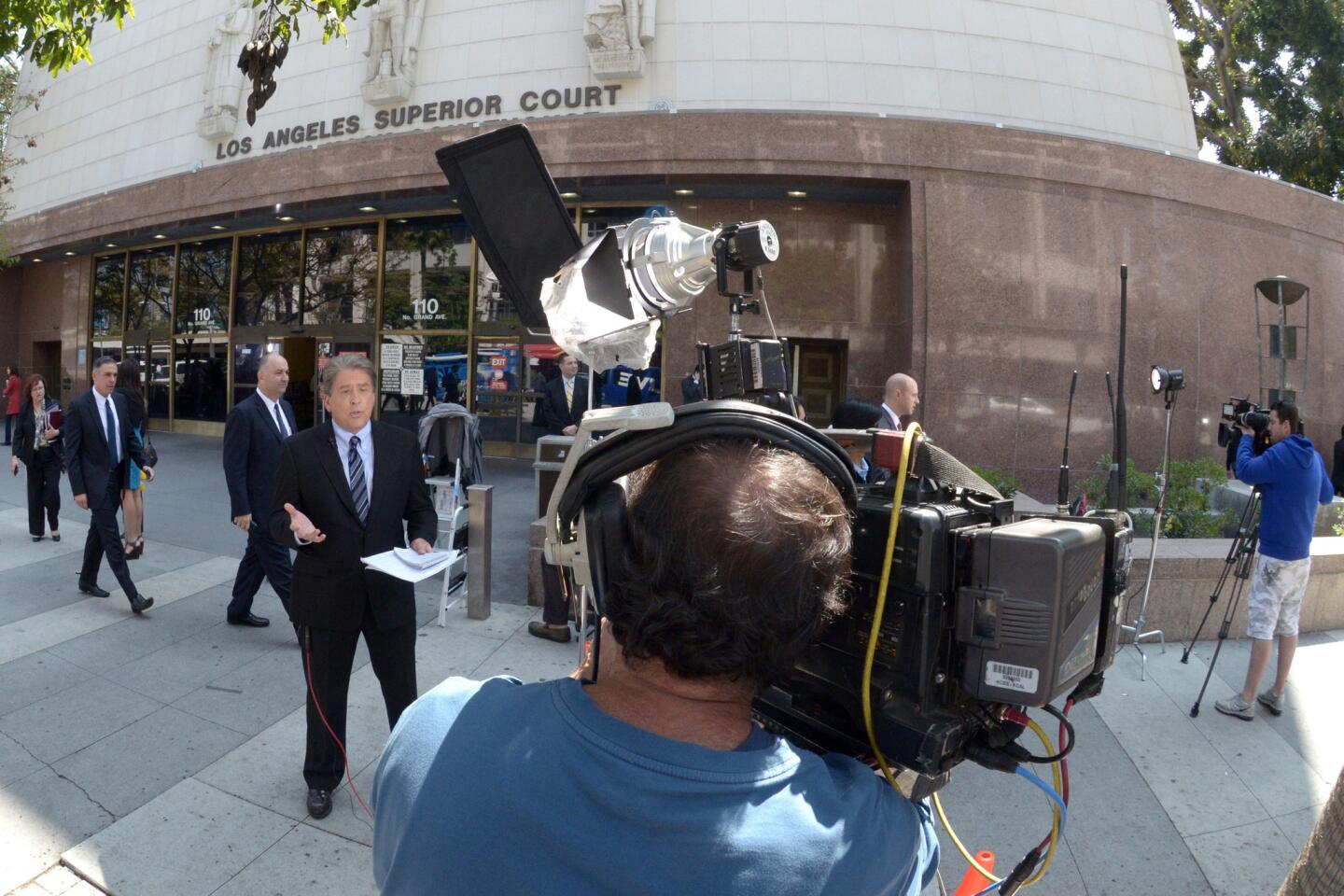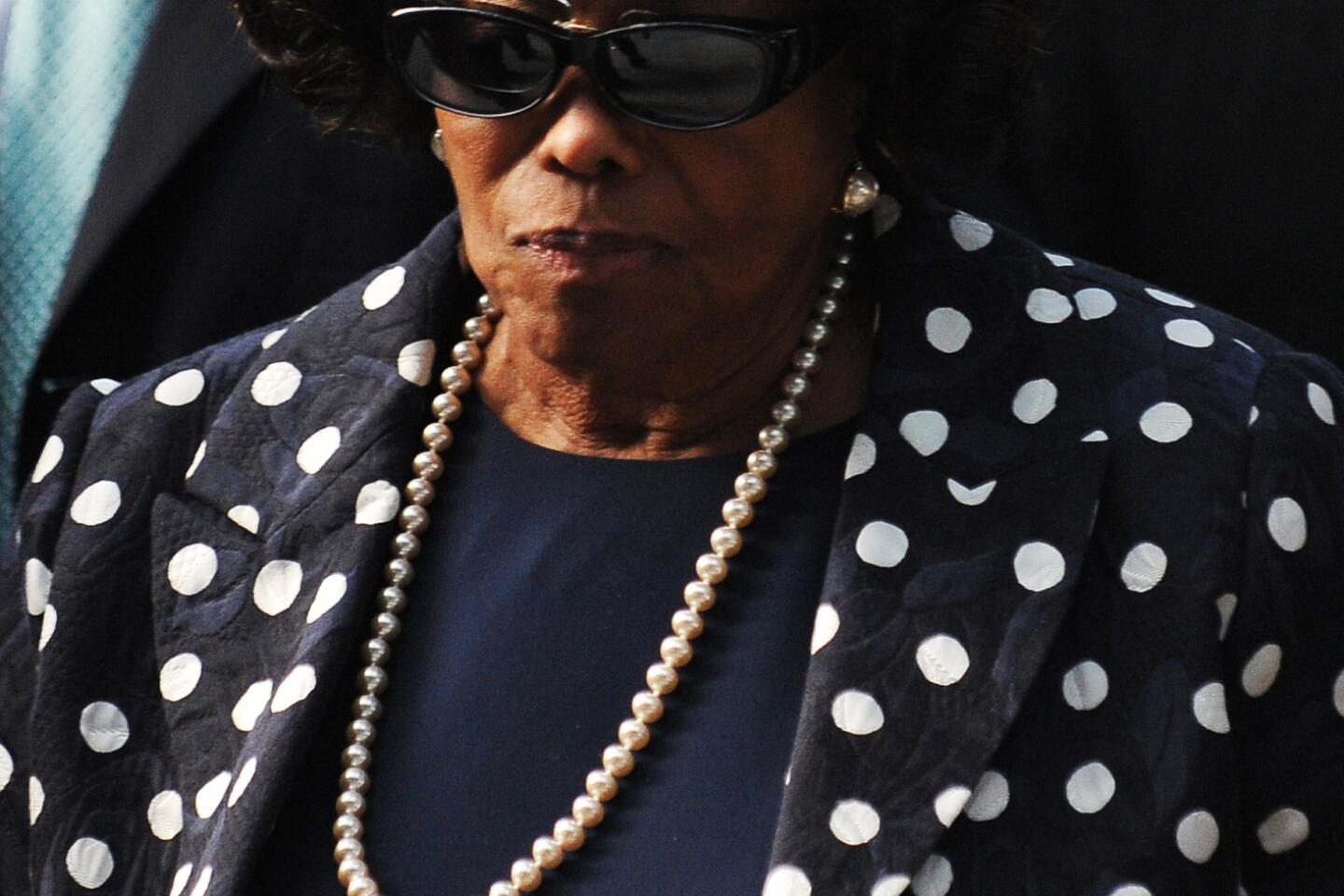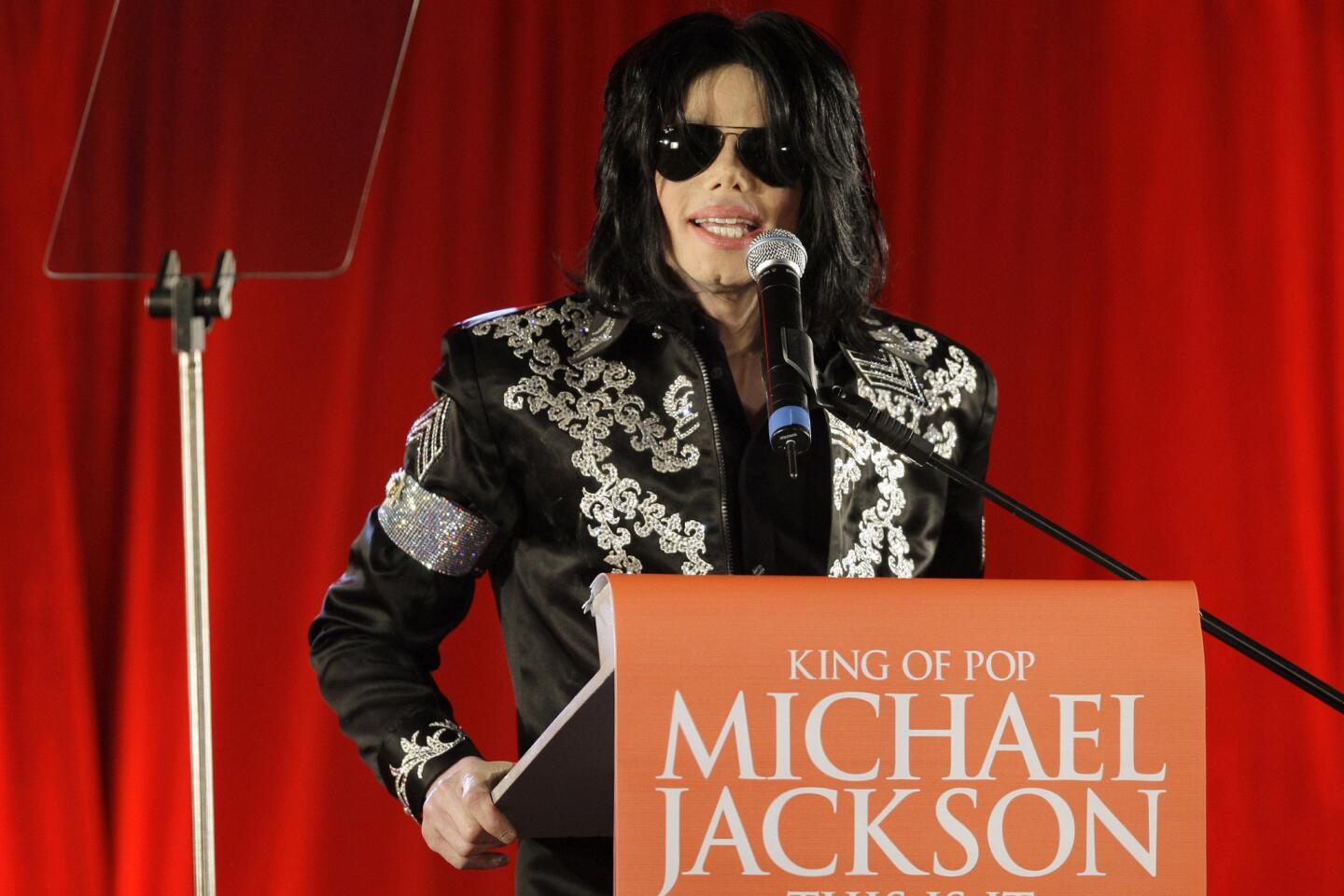Witness: Michael Jackson passed medical exam ‘with flying colors’
A few months before Michael Jackson’s death, AEG executives were told that the performer had passed a medical exam “with flying colors,” an in-house attorney for the company testified Wednesday.
Shawn Trell, senior vice president and general counsel for AEG, said he contacted a London insurance broker in November 2008 to inquire about cancellation insurance for “This Is It,” a series of planned concerts touted as Jackson’s comeback tour.
Cancellation insurance, Trell said, is a typical way to recoup advances made to an artist when an event falls through. According to its contract with Jackson, AEG had advanced the singer close to $30 million, an amount that included a $15-million line of credit and $7.5 million to cover production costs to mount the shows.
Insurance carriers, however, were “skittish” due to tabloid reports about Jackson’s health, Trell said. The London broker, Bob Taylor, suggested that Jackson have a medical exam by Dr. David Slavit of New York, who was trusted by the carriers.
Trell said the exam took place in February 2009, and that although he wasn’t privy to Jackson’s medical records, he was satisfied.
“Mr. Taylor’s exact words to me were, ‘Other than a slight case of hay fever, he passed with flying colors,’” Trell testified in the trial of the wrongful-death lawsuit brought by Jackson’s mother and three children against AEG.
AEG ended up securing a $17.5-million insurance policy that listed among its exclusions “the illegal possession or illicit taking of drugs and their effects.”
Trell said he continued to check in with Taylor to see if the marketplace had changed and the coverage could be increased because it was unusual for the insurance not to cover the entire advance made. “We were just trying to bridge the gap between cost and expense,” he testified.
A second insurance physical was scheduled for July 6, 2009. “We had no reason to believe that he wouldn’t pass,” Trell said.
On June 25, 2009, at 5:54 a.m., London time, Taylor sent an email to Dr. Conrad Murray, who had been brought onto the tour to tend to Jackson. The email, introduced as evidence in the case, read:
“The insurers have specifically requested information on the following:
Press reports on the artist at various times using a wheelchair, and whether any of these occasions were as a result of a medical issue.
Press reports that the artist had, or has, suffered a back injury.
Press reports that the artist is suffering, or has previously suffered from lupus.
Press reports that the artist is suffering, or has previously suffered from cancer.
Press reports that the artist was hospitalized in 2005.
Dates and brief details of any cosmetic procedures, and specific details of any complications.
Press reports that the artist has suffered from lung infection/emphysema and chronic gastrointestinal bleeding.
Press reports that the artist has minimal diet (is possibly anorexic).”
Jackson died hours later from a fatal dose of the anesthetic propofol administered by Murray.
The Jackson family contends that AEG negligently hired and controlled Murray and pushed the singer beyond his physical limits for their own profit. Murray is serving jail time for involuntary manslaughter.
Jessica Stebbins Bina, an attorney representing AEG, pointed out in the courtroom that the list of insurers’ concerns did not include drugs, painkillers, alcohol or sleep disorders.
She also walked Trell through the differences between AEG employees and the independent contractors who are primarily hired for tours. Trell previously testified that AEG had not looked into Murray’s history because he was an independent contractor and known to Jackson.
“It would be misplaced or misguided for us to inject ourselves into the affairs of an artist,” Trell said.
It was Jackson who requested Murray, Trell said, and he believed the two had worked together for three years prior.
During his three days on the witness stand, Trell has testified that he knew nothing about reports of Jackson’s erratic behavior or gaunt figure and has characterized the relationship between the singer and AEG as supportive and complementary.
In addition to the tour contract between Jackson and AEG, Trell said the two also had an agreement that proposed developing up to three film projects together, one of which was related to his “Thriller” video.
When nothing was developed by the agreement’s June 1, 2009, deadline, AEG sent a proposed amendment to extend that date to Jackson’s representatives, Trell said.
“I think the interest was still there on Mr. Jackson’s side and I know we were interested in helping him realize what he wanted to accomplish,” Trell said.
ALSO:
Nearly 100-year-old ‘rare’ bicycle stolen from Lancaster home
Controller: Progress in Bell, but potential for more problems high
Unions had bad night in mayor’s race, did better in council contests
Twitter: @corinaknoll
More to Read
Sign up for Essential California
The most important California stories and recommendations in your inbox every morning.
You may occasionally receive promotional content from the Los Angeles Times.
